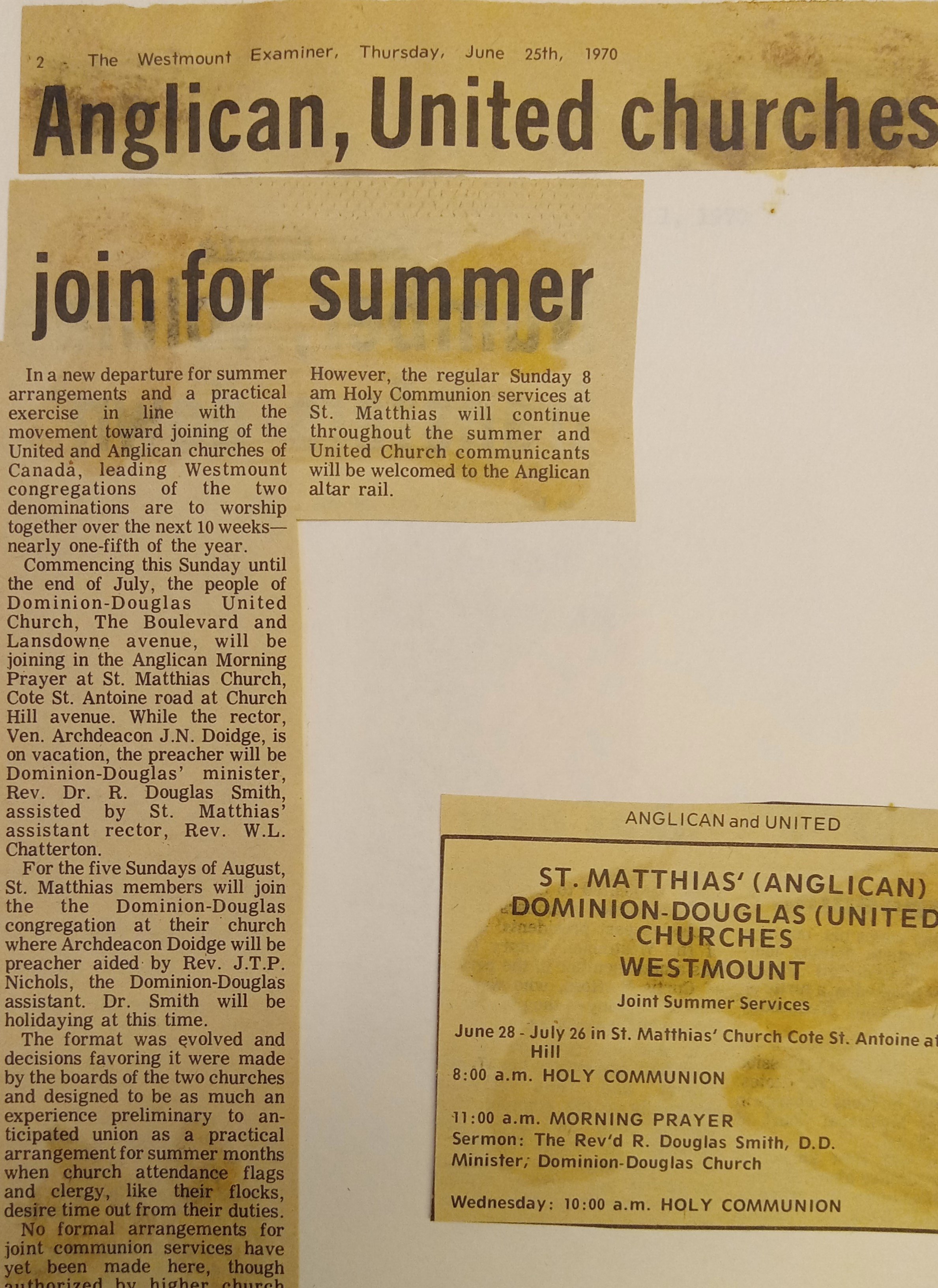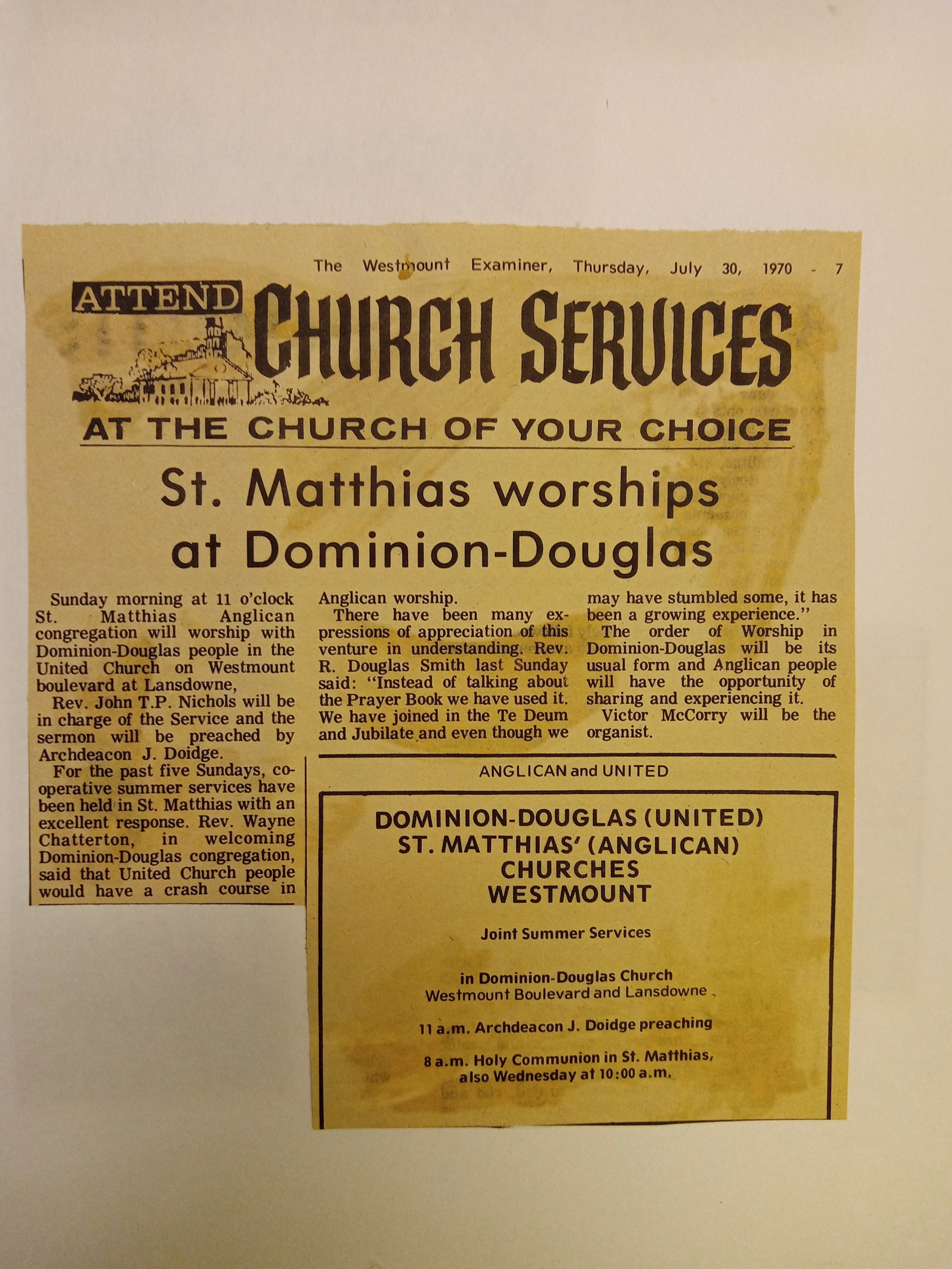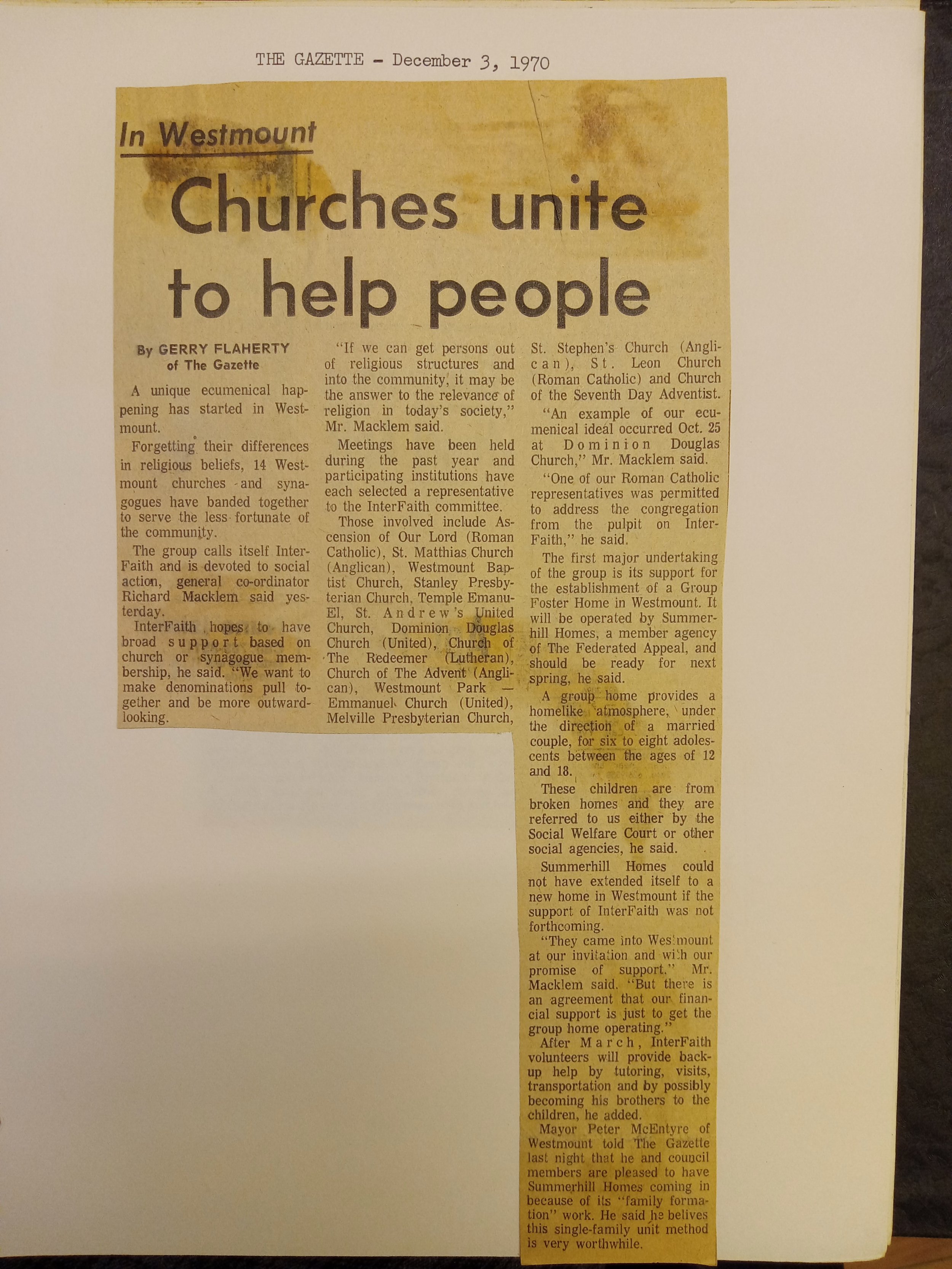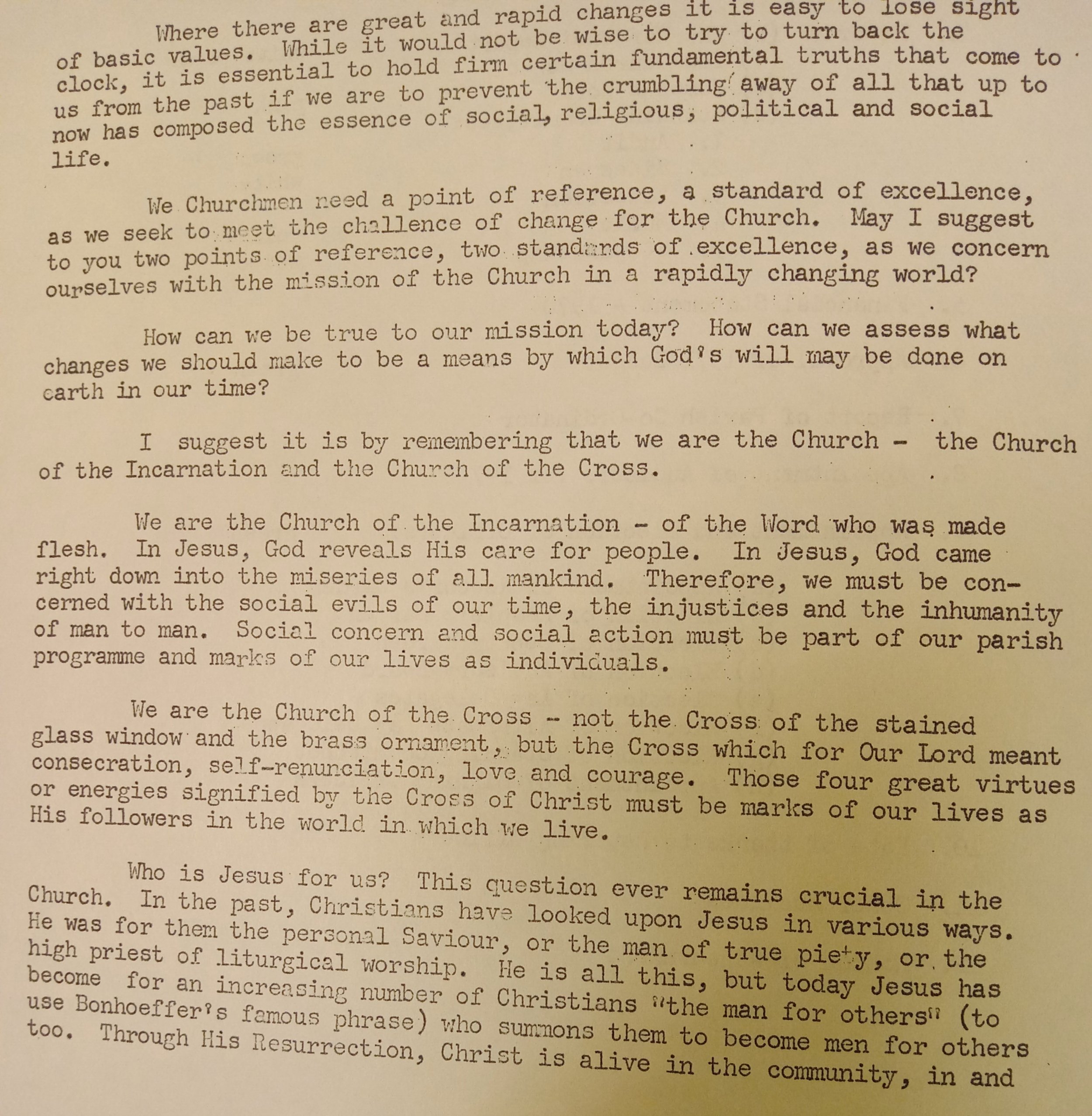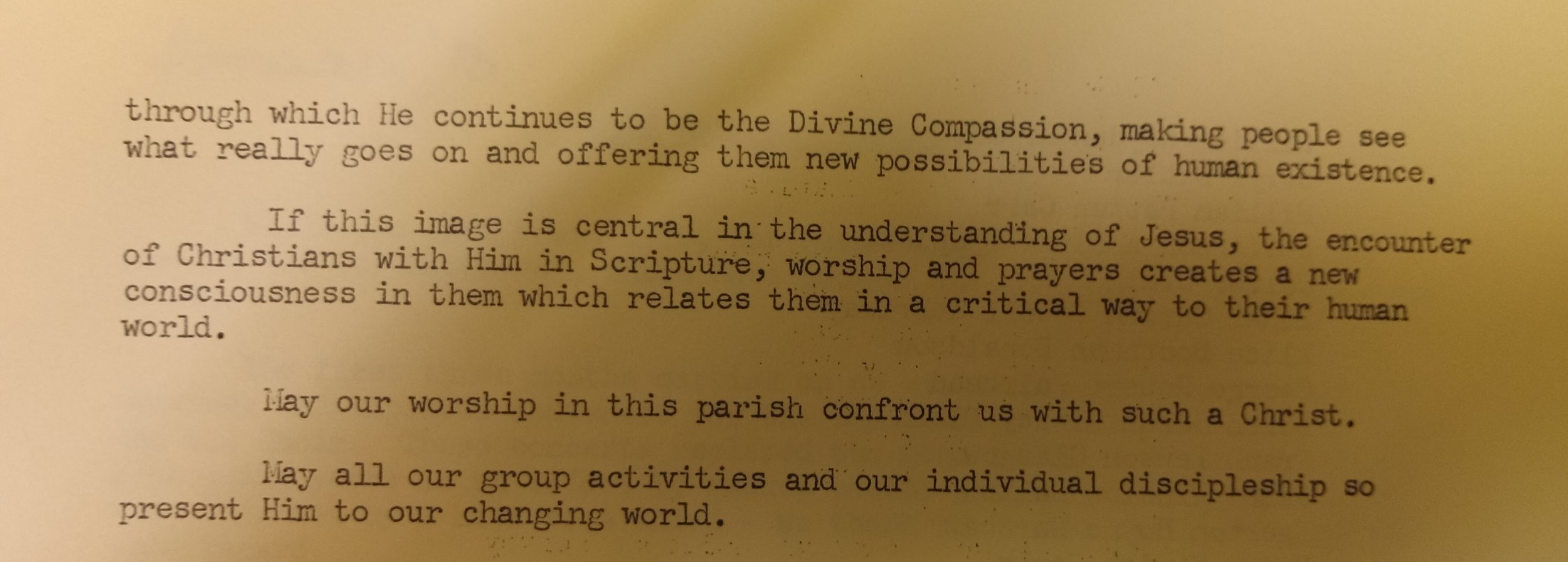July 9th: Summer Services
St. Matthias’ was officially founded as a mission of St. George’s, Place du Canada, in 1873, which means our community is 150 this year! For the next 12 months, we’ll be diving into the archives to shine the spotlight on particularly interesting parts of our history.
An advertisement from the Westmount Examiner in June 1970, informing the reader of joint summer services being held between St. Matthias’ and Dominion-Douglas.
In the 1960s, the Anglican and United Churches of Canada were actively contemplating becoming a single denomination. St. Matthias’ took part in these dialogues, and in larger conversations about Christian unity that were increasingly popular during the decade, particularly with what was called “the social gospel” and bears a striking resemblance to contemporary social justice theology mixed with a robust investment in tangible work. St. Matthias’ Meals on Wheels began as one such social gospel initiative. But working together to care for the world and talking about the logistics of Christian unity were not the only ways St. Matthias’ connected with its United neighbours.
In July and August 1970, St. Matthias’ and Dominion-Douglas United Church held a bit of a trade. Through July, the 11am service for both congregations was held in St. Matthias’, with Rev. Wayne Chatterton, the curate at the time, officiating a BCP Morning Prayer and one of the United Church ministers preaching; in August, Rev. Jack Doidge preached at the 11am services at Dominion-Douglas while a United Church minister officiated a United service. St. Matthias’ kept their 8am Eucharist throughout this period, to which Dominion-Douglas’ parishioners were invited, but the arrangement otherwise allowed clergy at both churches the opportunity to rest, and even to take their vacations.
Vestry 1971 seemed to think the experiment a success; the abnormally-chatty Wardens’ Report mentions that “the experiment seemed to work well” and that, even in January, Dominion-Douglas had already reached out to see about repeating the process in the summer of 1971. Toward the end of the meeting, Rev. Doidge asked Vestry whether they would be interested in proceeding – not just with the previous partner, but perhaps with other congregations – and in addition to general approbation for the idea, St. Matthias’ proved to be St. Matthias’ and suggested that, really, the choir ought to be involved.
But by the following Vestry, the mood had shifted entirely. The congregation raised concerns about the availability of the Eucharist and about the ease of travel to Dominion-Douglas (which, it must be noted, is only about 15 minutes by foot from St. Matthias’). Joint summer services were all well and good, but could we not try to join with another Anglican church? The resultant motion never came to fruition, as far as our archives tell: joint services had lasted two summers. And, within a few short years, the dream of church union, too, had died. There would be no more newspaper articles about joint service to the world, either, although the now-robust Meals on Wheels program would continue to operate in partnership with St. Andrew’s United for several years.
(above: Rev. Jack Doidge’s Address to Vestry 1971)
Despite differences in worship style, in preaching content, in musical tradition, and sometimes even in language, the churches of Westmount had for this brief time been animated by their social-gospel ethos to come together in a variety of creative ways. Our social justice ethos in the Anglican Church today could learn a lot from this robust engagement with the needs of the neighbourhood, one that saw members of other churches not as competitors for attendance but as partners in service. Especially as St. Matthias’ is today the only Anglican church in a significant radius, what might we have to gain from laying down our denominational exclusivity and partnering with Westmount’s other houses?


